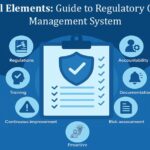It seems E-commerce platforms are under threat from a barrage of new regulations by the Government of India. With changes to the regulation of e-commerce entities like the FDI Policy, 2017, Press Note No. 2, 2018 from the Department of Promotion of Industry and Internal Trade (DPIIT) requiring entities to furnish certificate of compliance with the guidelines as well as changes in categorization based on inventory and even the Consumer Protection (E-Commerce) rules, 2020 by the Ministry of Consumer Affairs. E-commerce platforms are coming under heavy regulation. An increase of grievance redressal mechanisms and regulatory compliance are worrying e-commerce platforms throughout the country. Potential changes are being contemplated through the new draft amendments made to the Consumer Protection (E-Commerce) Rules, 2020 bringing about even more regulation.
We need to understand why this change was being suggested in the first place. The draft rules come in the backdrop of concerns raised by offline retailers in India relating to an abuse of dominant position in the market by E-Commerce entities. The Department of Consumer Affairs on 22nd June notified the draft amendment to the Consumer Protection (E-commerce) Rules, 2020. Its view is to curb unfair trade practices, bolster the already proposed grievance redressal measures from the previous rules, provide equal opportunity and privacy of consumers. The rules have not yet been given force and suggestions to the new draft is welcome till 6th July for the public. Now let us take a closer look at the draft to better understand the implications.
Doesn’t matter whether you are in or out
The first major change suggested is that all e-commerce entities operating in India are required to register with the Department of Promotion of Industry and Internal Trade (DPIIT). The registration number thus attained must be displayed on the e-commerce platform as well as invoices of consumers to stay compliant. This would enable the DPIIT to regulate the e-commerce companies doing business in India.
Unlike previously, the new draft amendment to the rules includes registration for Partnerships and Limited liability partnerships, along with companies and outside offices owned/controlled by residents of India.
E-‘commencing’ security changes
In addition to the many compliances included in the previous draft of the E-commerce rules, revisions to rule 4, rule 5 and rule 6 are of most significance. Rule 5 being a general change in structures for all e-commerce entities and Rules 6 speaking about specific changes to marketplace e-commerce entities.
Grievance Redressal
The new draft rules introduce the appointment of two more compulsory officers as part of the grievance redressal mechanism of an e-commerce entity. This is in addition to a standalone grievance redressal officer as was in the previous rules.
Chief Compliance Officer (CCO): Shall Ensure compliance with the consumer protection act and rule. The CCO will be liable if he fails to ensure the e-commerce is observing due diligence in following the act and rules. The CCO is managerial personnel of the e-commerce entity and must be a resident and citizen of India.
Nodal Contact Person (NCP): Shall ensure compliance with order or requisitions made to the e-commerce entity by the appropriate law enforcement. The NCP is an employee, other than a CCO, who is a resident and citizen of India.
Resident Grievance Officer (RGO): Shall receive and acknowledge any order, notice or direction by government, competent authority, or court of competent jurisdiction. The RGO is also an employee of the company and must be a resident and citizen of India.
In addition to these a separate mechanism to address grievances shall be the publishing of the name and contact details of the RGO on the e-commerce entity’s website, platform, and mobile app (if any).
Importer Syndrome
The new draft cuts down information asymmetry significantly with regards to a consumer and the origins of the good or service. When a good or service has been imported for sale on the website/platform then the:
- Name and details of the importer shall be published on the site. If importing is by a registered seller, then the seller’s details must be published.
- Country of origin to be displayed while consumer is viewing for purchase. Suggestions to alternative domestic products must also be made to ensure fair opportunity.
- Ranking of goods should be provided without discrimination against domestic goods and sellers.
While measures to help domestic providers are specified the methods through which this should be achieved is still foggy.
Search Optimization Under threat – Right to Privacy?
Under Rule 5(14)(e), The new draft rules come down heavily on the use of information extracted based on consumer activity to help promote fairness in the e-commerce website/platforms. Manipulation of search results is no longer permissible if the draft rules are imposed. Information regarding the consumer shall not be made available to any other person other than the consumer itself. The option of sharing such information is dependent on the express consent of the consumer. Non-cognizant ways of attaining this consent are also impermissible. For example: pre-ticked checkbox.
Under Rule 5(14)(d) & Rule 5(14)(f), The e-commerce entity shall not use nor permit the use of its trademark or name to other sellers on their own website/platform. Any representation of goods or services sold on the website to be in anyway related to the e-commerce entity directly or by association to other brands will count towards staying compliant.
Under Rule 6(6)(a), Marketplace e-commerce entities, specifically, must comply with consumer information collected. It must make sure not to provide unfair advantage to its related parties or associated enterprises.
Relations and Associations
Related parties as defined in Companies act [Sec. 2(76)] and Associated enterprises shall not be engaged in activities that can otherwise be carried out by the entity.
To Clarify, two enterprises are associated if they have a:
- Common chain of directors or managing partners.
- Common chain of shareholders holding not less than 5% of shares of the company.
- 10% or more ultimate beneficial ownership.
- Controlling power over decisions of the other. Either by shareholding or agreements.
- Direct or Indirect voting power in the other.
- Person or Enterprise holding shares having voting power.
- Relationship of mutual interest, the nature of which may be prescribed from time to time.
Small but Important Changes:
Fallback liability: Any seller that fails to deliver the goods or services because of neglect, omission or committing any act prescribed by the entity, the liability of such action falls back on the entity.
Transport for all: Logistics partners of the entity shall not discriminate treatment to sellers of the same category. Unless they provide a disclaimer with Terms and conditions on the specificity of relationship with certain sellers registered with the entity.
Flash Sale: Highly discounted goods and service promoted by entity for specific period of time on selective goods is no longer permissible under the draft rules suggested. There is a lack of clarity with regards to the effect on normal sales on site. Although, in further clarification conventional flash sales have been not included in these rules. Only specific flash sales or back-to-back sales which limit customer choice, increase prices, and prevents a level playing field are not allowed.
Cross-selling: Name and relevant data of the entity offering related or complimentary goods or services to a main product is mandatory.
Sponsored Listings of Products and Services: Shall be clearly identified on the website/platform.
Invoice Font Size: Font size of seller name shall be equal to font size of e-commerce entity name on invoice to consumer.
Selling to Sellers: Registered Sellers cannot be sold to by the e-commerce entity.
Subsidy for Advertisement: E-commerce entities cannot ask for subsidies on products of a seller in exchange for advertisement.
The Foreseeable Future
The suggested changes brought about by the new draft rules are wide ranging in its effects. It points in the direction of stricter norms as applicable to an e-commerce organization. As with any changes in law there comes accompanied with it new standards to adhere to. Although the draft has not yet been enforced, we must be prepared to face the future.
Whether it be structuring the specifics relating to how to conduct flash sales or setting up of your specific grievance redressal systems or a reassessment of importing norms, or even the inclusion of expiry dates, registering with the Department of Promotion of industry and internal trade etc. Organizations must stay in compliance with the changing laws to remain up and running and stay informed. Keeping in mind the current legal scenario in the Indian context and the economy’s shift to a digital centric workflow, it is wise to have automation where businesses may not have the know-how or resources to stay up to date with changing laws.
To stay updated on compliance, contracts, and dispute management, follow Lexplosion Solutions regularly!
Written by: Abry Sunny Anthraper
Edited by: Koushik Sinha
Disclaimer
All material included in this blog is for informational purposes only and does not purport to be or constitute legal or other advice. This blog should not be used as a substitute for specific legal advice. Professional legal advice should be obtained before taking or refraining from an action as a result of the contents of this blog. We exclude any liability (including without limitation that for negligence or for any damages of any kind) for the content of this blog. The views and opinions expressed in this blog are those of the author/(s) alone and do not necessarily reflect the official position of Lexplosion Solutions. We make no representations, warranties or undertakings about any of the information, content or materials provided in this blog (including, without limitation, any as to quality, accuracy, completeness or reliability). All the contents of this blog, including the design, text, graphics, their selection and arrangement are the intellectual property of Lexplosion Solutions Private Limited and/or its licensors.
ALL RIGHTS RESERVED, and all moral rights are asserted and reserved.





